SNE calls for a status quo for sport foods until general EU food law is appropriately adopted
On 15 June 2016, the European Commission published its long awaited report on sports foods, which will serve as the basis for the future regulation of the sector. The Report concludes that sports food should be regulated by general food law, although their specificities may have to be taken into account in the application and implementation of current horizontal EU rules.
With the repeal of the former legislative framework (the PARNUTS Directive) on 20 July 2016, SNE is deeply concerned that implementing adaptations to general EU food law will not be achievable within this timeframe. Without clarity on the EU and national rules applicable and in the absence of a definition for sports foods at EU level, both manufacturers and national enforcement bodies will be faced with a lack of legal clarity to the detriment of sportspeople and the sector in Europe. SNE urges the EU to maintain the status quo of the current rules, until appropriate adaptations to general EU food law are in place.
The Commission Report has presented a range of challenges for the sector. SNE fears that without appropriate adaptations to EU food law in place, these challenges may not be overcome:
1. The efficient functioning of the single market
- If the specificities of sports foods are not taken into account at EU level, the resulting national fragmentation will affect the functioning of the single market and harm the competitiveness of the EU industry.
- The Report recognizes that SMEs are largely involved in the sports nutrition market, and that there will be negative implications for the competitiveness of the sector when it loses its specific status.
2. Failure to ensure appropriate consumer protection and information
- The European Food Safety Authority (EFSA) recognised that intense physical exercise is a specific risk condition and that specific nutritional requirements are needed at different stages of physical exercise. Indeed, intense physical exercise requires additional hydration, as well as higher energy, carbohydrate and sodium intakes in order to avoid nutritional deficiencies and injuries, and ensure appropriate recovery.
- Therefore, composition and information requirements must be adapted for these products as they differ from the requirements for general consumers. It is critical that the Commission adapts all relevant general EU food law, including the Nutrition and Health Claims and Food Information to Consumers Regulations, as well as the legislation governing the addition of nutrients and other substances to ensure that the provisions are suited to the specificities of these products and the specific nutritional needs of sports people. A clear definition is also needed at EU level in order to ensure appropriate regulatory adaptations for this product category.
3. A missed opportunity to tackle doping and good manufacturing practice
- The Report recognizes stakeholders’ concerns about doping substances, but states that these concerns are not relevant to EU food law and should be addressed on the basis of international and voluntary standards. However, national initiatives in this field create barriers to trade because terms of reference and logos often differ.
- It is critical for the safety of sportspeople that the EU rules establish harmonised terms of reference for quality systems, based on harmonised good manufacturing practices (GMP) in relation with doping substances. A single standard should exist within the EU and promoted via an EU logo in order to ensure the suitability of foods marketed as “intended for sportspeople”.
SNE calls upon the European Parliament and Council to intervene and request a temporary extension of the current rules (Directive 2009/39/EC) until general food law is appropriately adapted to include clear and tailored rules reflecting the specificities of these products. It is the responsibility of the EU Institutions to ensure a high level of protection for sportspeople and enable them to meet their nutritional needs.
Notes to editors:
- Specialised Nutrition Europe (SNE) is the trade association representing the interests of the specialised nutrition industry across the European Union. SNE members are the national associations of 16 Member States and their members are the companies producing foods for particular nutritional needs, known at EU level as 'foods for specific groups'.
- SNE members provide tailor made dietary solutions for populations with very specific nutritional needs including infants and young children, individuals under medical supervision, sportspeople, overweight and obese consumers, and those suffering from coeliac disease.
- “PARNUTs” refer to foodstuffs intended for PARticular NUTritional uses, as covered by Directive 2009/39/EC, i.e.: “foodstuffs which, owing to their special composition or manufacturing process, are clearly distinguishable from foodstuffs for normal consumption, which are suitable for their claimed nutritional purposes and which are marketed in such a way as to indicate such suitability”.
- “Foods for Specific Groups” refer to foods intended for infants and young children, foods for special medical purposes, and total diet replacement for weight control, as covered by Regulation (EU) 609/2013.
- During the negotiation process held in 2012-2013 on Regulation (EU) 609/2013, the European Parliament and Council agreed to give to the Commission a mandate to assess the necessity of specific provisions for sports food. This report was due by 20thJuly 2015 in order to leave sufficient time to consider whether specific EU rules should be adopted for sports food, before the repeal of the PARNUTs Directive on 20th July 2016.
- An EFSA scientific and technical assistance on food intended for sportspeople was published in September 2015. In this assessment, EFSA confirmed that the previous scientific advice remains fully valid (recognizing in particular the essential role of carbohydrates intake in relation to physical performance and the role of electrolytes (particularly sodium) in the maintenance of adequate hydration during exercise and in post-exercise re-hydration).
- SNE therefore calls for appropriate adaptations to general food rules, which take into account the specificities of these foodsdesigned to meet the particular nutritional needs of sportspeople.
